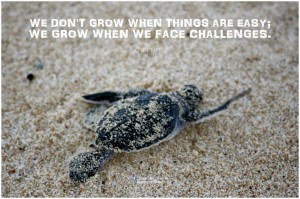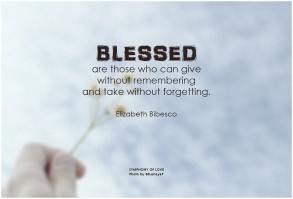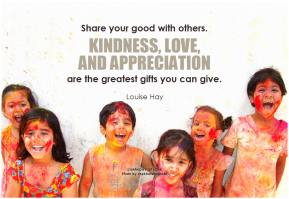Authentic Relationships – Do You Have a Genuine Connection?
Somehow, our modern view of love has largely become fixated on looking good and ticking the right boxes as opposed to actually feeling good.
Worried your relationship is lacking genuine connection or is not truly authentic? Or not sure you even know the difference, truth be told? Read on.
10 Ways to Have Connected and Authentic Relationships
1. Don’t rely on your relationship for your sense of wellbeing and happiness.
Despite the many films, novels, and magazines touting that the way to true happiness is to fall in love, no relationship can thrive under the pressure of being your only source of joy. This is not actually love at all, but codependency – a reliance on another for your sense of identity that means you lose sight of who you are and become manipulative to get your needs met. The more you instead cultivate your own goals, interests, and joys, the more of yourself there is to share.
2. Don’t avoid challenges, expect and welcome them.
 So if relationships are not to make you feel better, what are they for?
So if relationships are not to make you feel better, what are they for?
Relationships are actually magnificent tools of self growth in disguise.
The very act of letting another person get close enough to see both your strengths and weaknesses inevitably can bring out defensiveness and conflict. While you might have been taught this is ‘bad’ or to be avoided, the truth is that it’s an incredible opportunity to learn more about yourself and how to communicate.
By expecting conflict instead of avoiding it, and working with it instead of running from it, it can lead to new levels of both intimacy and self awareness.
3. Enjoy the present moment together more often.
When it comes to genuine connection, it’s not about time spent in the same room or doing the same activity like zoning out in front of yet another movie. It’s about time that is actually spent sharing your thoughts, feelings, and dreams. And real connection is always found in the present moment. This means seeing your partner as they are right now, not always focussing on what they did in the past or what you want to happen in the future.
4. Cultivate boundaries.
Being your true self around another and allowing intimacy to grow can be exciting and intense. But using this excitement to mean you don’t pay close attention to what really works for you, and don’t set boundaries when things don’t, is again the road to an inauthentic, codependent relationship.
Connecting from a true place means respecting yourself and the other person. Which means you say yes when you mean yes, no when you mean no, and you remember to check in with what you are really feeling and wanting.
5. Both give and receive in equal balance.
 For genuine connection, both parties need to work at giving and sharing their thoughts, feelings, time and attention. If you are always the giver, how can you start to allow the other person to do more for you? And if you are always receiving, what three things can you do for the other person this week? How can you give encouragement more?
For genuine connection, both parties need to work at giving and sharing their thoughts, feelings, time and attention. If you are always the giver, how can you start to allow the other person to do more for you? And if you are always receiving, what three things can you do for the other person this week? How can you give encouragement more?
6. Take risks.
In order to be fully loved you must be fully yourself, even if this means you must risk being vulnerable. Yes, you might experience the other person’s disapproval when you share your real thoughts and feelings. Yes, you might even get rejected, and it might hurt. And no, not all relationships can withstand authenticity.
But the risk pays off when you find yourself surrounded by people who support all that you are, instead of just parts of you.
7. Accept more to love more.
 Authentic relating doesn’t mean liking another person only when they are ‘being nice’ or ‘in a good mood’. The more you can accept someone for all that they are, the more a connection can grow.
Authentic relating doesn’t mean liking another person only when they are ‘being nice’ or ‘in a good mood’. The more you can accept someone for all that they are, the more a connection can grow.
Of course you must also extend this to yourself. The more you can accept your own strengths and challenging sides, the more your partner can accept you in return.
*Note that doesn’t mean you allow yourself to be mistreated or in any way being abused under the guise of “I accept my partner has a mean streak!” Remember, authentic relationships involve boundaries and self-care.
8. Be responsible for your actions.
Genuine relationships can’t thrive if we are blaming the other for our own choices or responses. As well as recognising what you are responsible for, authentic connection requires apologising when required. Not before you are ready, though – a fake apology just to get something out of the way is not authentic at all. Work through your feelings, accept your part in things, then in your own time offer an apology from the heart.
9. Commit to respect and kindness.
 Sounds obvious, but how many of us end up using our relationships to take out our frustrations? Or constantly criticise the other?
Sounds obvious, but how many of us end up using our relationships to take out our frustrations? Or constantly criticise the other?
Genuine connection requires a serious commitment to be good to each other and to see the best in each other no matter what. Without this, trust doesn’t grow.
Commit to upholding a vision of each other’s best selves even (and especially) when life gets difficult.
10. Value your relationship, not just what it gives you.
If you are in a relationship because you are scared to be alone, because you thought you better settle, or because it makes for a lifestyle you want, then you are not valuing the relationship but what it gives you. An authentic relationship means valuing the opportunity to grow and learn and value each other.
Do you have another tip for keeping relationships authentic and connected? Share below.
Photos by Bryan Brenneman, BK, Epsos.de, BK
 Andrea M. Darcy is a wellbeing writer and a mentor who loves writing about and helping people with relating issues. Find her @am_darcy.
Andrea M. Darcy is a wellbeing writer and a mentor who loves writing about and helping people with relating issues. Find her @am_darcy.






Stay single, buy a dog when your lonely, work hard, get a good education, travel.
If it works for you! But somehow we feel maybe it isn’t if you are researching connection. It’s ok to just be lonely too, to admit we are lonely. A lot of us are.
Perhaps related to cultivating boundaries, and giving and receiving in balance, is making space for choice. Recognizing who is choosing what and when. Many of us have trauma impeding our access and understanding of our own choice. This is hard deep work to uncover our choices, contact them, and build the muscles to voice them. This can prevent us from connecting authentically with another when we are not accessing our own choice. We can fall into depending on others to choose for us, or we can stay guarded from another to avoid choosing…..
That’s really interesting jb, thank you for sharing! You are right, trauma and traumatic childhoods can leave us with a core belief we aren’t worthy, so we seek worth by being what others want, until our identity become fluid and we don’t know what we want or what choices are actually ours.
Thank you for these valuable suggestions. I’ve been ignoring or even dismissing relationships until recently in my spiritual journey realizing this part buried deep in unconsciousness must be explored as well…What a great challenge it had been! However, by now I have fully understood how it is such ‘an incredible opportunity to learn more about yourself and how to communicate.’ Without this close mirror offered in any close relationships, a whole LOT of deeper patterns couldn’t get stirred up and then healed/released…and we are basically on hide of what we don’t want to face in ourselves… All in all, I find your post very helpful with genuine and practical information that allow me to understand how to open up more (where I habitually resist, give up, or contract) and take this journey of self-exploration deeper. It is very INTENSE, to face whatever might surface but all worth it – at least for my purpose of exploring the deep unconscious water.
I am saddened by the bitterness I see in others with always an excuse im stressed im a truck driver i lift all these people in prayer at church ⛪️
I ask Jesus to change cold hearts 💕 there are so many all I hear is cussing and filthy behavior